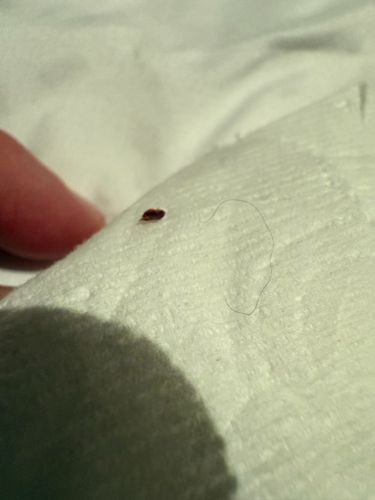Bed Bug
Scientific Name: Cimex lectularius
Order & Family: Hemiptera (true bugs), Cimicidae
Size: 4-5 mm (0.16-0.20 inches) long, unfed; can be larger when engorged with blood.

Natural Habitat
Primarily human dwellings, especially bedrooms. They hide in cracks and crevices, mattresses, bed frames, furniture, and walls.
Diet & Feeding
Exclusively blood-feeders (hematophagous), primarily feeding on human blood, but will feed on other warm-blooded animals if humans are not available.
Behavior Patterns
Nocturnal, typically feeding at night while hosts are asleep. They are attracted to carbon dioxide and body heat. They crawl onto hosts, feed for a few minutes, then retreat to their hiding spots. They are gregarious and often found in clusters.
Risks & Benefits
Potential risks include itchy bites that can lead to skin irritation, allergic reactions, and secondary skin infections from scratching. They are not known to transmit diseases to humans. There are no known benefits to humans or the ecosystem.
Identified on: 11/3/2025